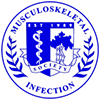Authors: Chen AF, Fedorka CJ, Klatt BA, Pittsburgh, PA
Title: Impaired Nutritional Status in MRSA Infected Total Knee and Hip Arthroplasties
Purpose: The prevalence of MRSA infections is increasing. While impaired nutritional status delays wound healing and may lead to increased risk of infection, the role of nutrition in total hip and knee arthroplasty MRSA infections has not yet been studied.
Methods: Forty-five consecutive patients and 57 infected total hip and knee arthroplasties were analyzed in a retrospective manner over the last three years. Demographic, surgical, laboratory and medical data were collected from patients that presented to a single-center from an outside hospital or from the main hospital. To assess nutritional status, serum protein and albumin were collected. Normal protein values ranged between 6.3-7.7 gm/dL and normal albumin levels ranged from 3.4-5.0 gm/dL. Joint fluid and tissue cultures were taken by aspiration or intraoperatively. After seven days of growth, cultures were classified as negative, positive for MRSA or positive for non-MRSA organisms including gram positive cocci, gram negative rods, fungi and mixed gram negative and gram positive organisms. Gram positive cocci included MSSA, streptococcus viridans, enterococcus faecalis, group B streptococcus and peptostreptococcus. Gram negative rods included enterobacter, pseudomonas aeruginosa, klebsiella, escherichia coli, proteus mirabilis, serratia marcescens and prevotella. The only fungal agent isolated was candida. Nutritional laboratory values were compared between negative cultures and MRSA positive cultures. The patient population consisted of 26 males (45.6%) and 31 females (54.4%) with an average age of 64.9 years. There were 18 revision or native total hip arthroplasties (31.6%) and 39 revision or native total knee arthroplasties (68.4%). Thirty-seven prostheses were on the right (64.9%) and 20 were on the left (35.1%). Data was collected with IRB approval and was analyzed using chi-squared tests. Statistical significance was determined by a p-value less than 0.05.
Results: Of the 57 total hip and knee arthroplasties, 38 grew positive cultures. Specifically, there were 10 MRSA infections (17.5%) and 28 non-MRSA infections (49.1%). Patients with negative cultures had a mean protein level of 7.9 gm/dL and a mean albumin level of 3.2 gm/dL. Patients with MRSA positive prostheses infections had decreased albumin (2.5 gm/dL) and protein (6.2 gm/dL) levels compared to patients who had negative cultures. MRSA patients had statistically significant (p = 0.044) decreased albumin levels, but no statistically significant decrease in protein levels (p = 0.37).
Discuassion and Conclusion: Impaired nutritional status has been shown to delay wound healing, which may lead to increased risk of infection. This study demonstrated that patients with MRSA prostheses infections have nutritional deficiencies, as indicated by a statistically significant decrease in serum albumin levels. Further studies should examine if impaired nutritional status predisposes patients to increased MRSA total joint arthroplasties, as measured by the nutritional parameters of protein, albumin, prealbumin and transferrin, and if intervention decreases the incidence of MRSA infections in total hip and knee arthroplasties.

